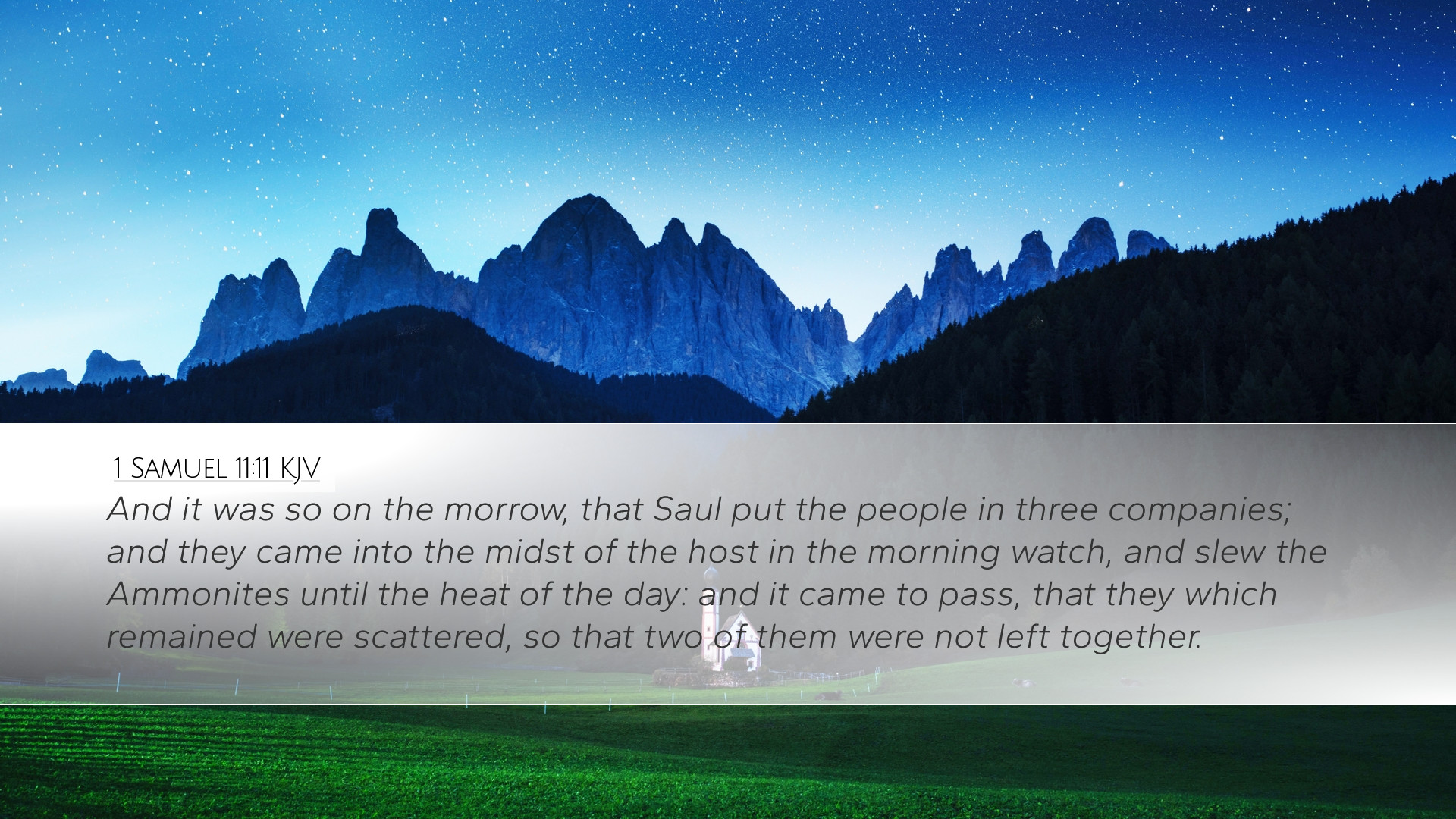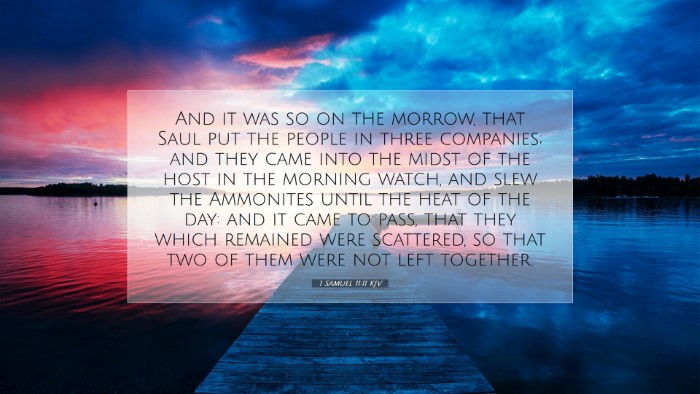Commentary on 1 Samuel 11:11
Bible Verse: "And it was so on the morrow, that Saul put the people in three companies; and they came into the midst of the host in the morning watch, and slew the Ammonites until the heat of the day; and it came to pass, that they which remained were scattered, so that two of them were not left together."
Contextual Overview
This verse occurs within a critical juncture in the narrative of Israel's early monarchy, showcasing the transformation of Saul from anointed king to valiant leader. The context involves an imminent threat from Nahash the Ammonite, who intended to shame and mutilate the inhabitants of Jabesh-gilead.
Analysis and Insights
Saul's Military Strategy
According to Matthew Henry, Saul's decision to divide the army into three companies illustrates a strategic military maneuver, enhancing their effectiveness against a numerically superior force. This tactical division enabled a concentrated assault at a critical time, catching the Ammonites unaware during the morning hours.
The Timing of Attack
Adam Clarke notes the significance of the 'morning watch.' This phrase indicates a time of day when soldiers were generally less vigilant due to fatigue or the transition of shifts. The element of surprise was fundamental to Saul's success, demonstrating his emerging leadership qualities while relying on divine providence.
The Implication of the Heat of the Day
The term 'heat of the day' signifies not only the physical strain placed on the soldiers but symbolizes the culmination of their efforts against the Ammonite threat. Albert Barnes reflects that this phrase serves to underline the thoroughness of Saul's military campaign; the slaughter was so significant that the remaining enemy troops found themselves isolated and demoralized.
Theological Reflections
Divine Assistance and Human Action
This verse epitomizes the interplay between God’s providence and human action. Matthew Henry explains that while Saul organized the attack, it was ultimately God's support that led to the defeat of Nahash. This scenario mirrors the biblical theme of divine empowerment in the face of human adversities, reminding readers of the necessity of intertwining faith with prudent action.
Leadership and Valor
Saul's emergence as a leader and warrior serves as a vital lesson for contemporary leaders in faith communities. His willingness to act decisively for the deliverance of Jabesh-gilead reflects the essence of pastoral leadership, which involves taking bold steps in times of crisis. Adam Clarke emphasizes that leadership is not merely about authority but about the courage to defend those under one’s care with wisdom and integrity.
Practical Applications
- Strategic Leadership: Leaders must consider the wisdom of strategy and timing in decision-making processes.
- Faith in Action: Recognizing that while strategic planning is vital, outcomes hinge upon reliance on God.
- Community Support: Encourage unity within groups or congregations as strength is found in collective effort.
- Resilience Against Adversity: Faith leaders should exemplify resilience in the face of challenges, providing examples of trust in divine intervention to the communities they lead.
Conclusion
1 Samuel 11:11 serves as a powerful reminder of the themes of leadership, divine assistance, and the importance of strategic action within the framework of faith. As we study this passage, it becomes clear that God, in His sovereignty, often works through human initiative, equipping leaders to confront challenges with wisdom and courage. This text offers a rich foundation for pastoral and theological reflection, inspiring leaders today to act with both faith and strategy in the service of their communities.


